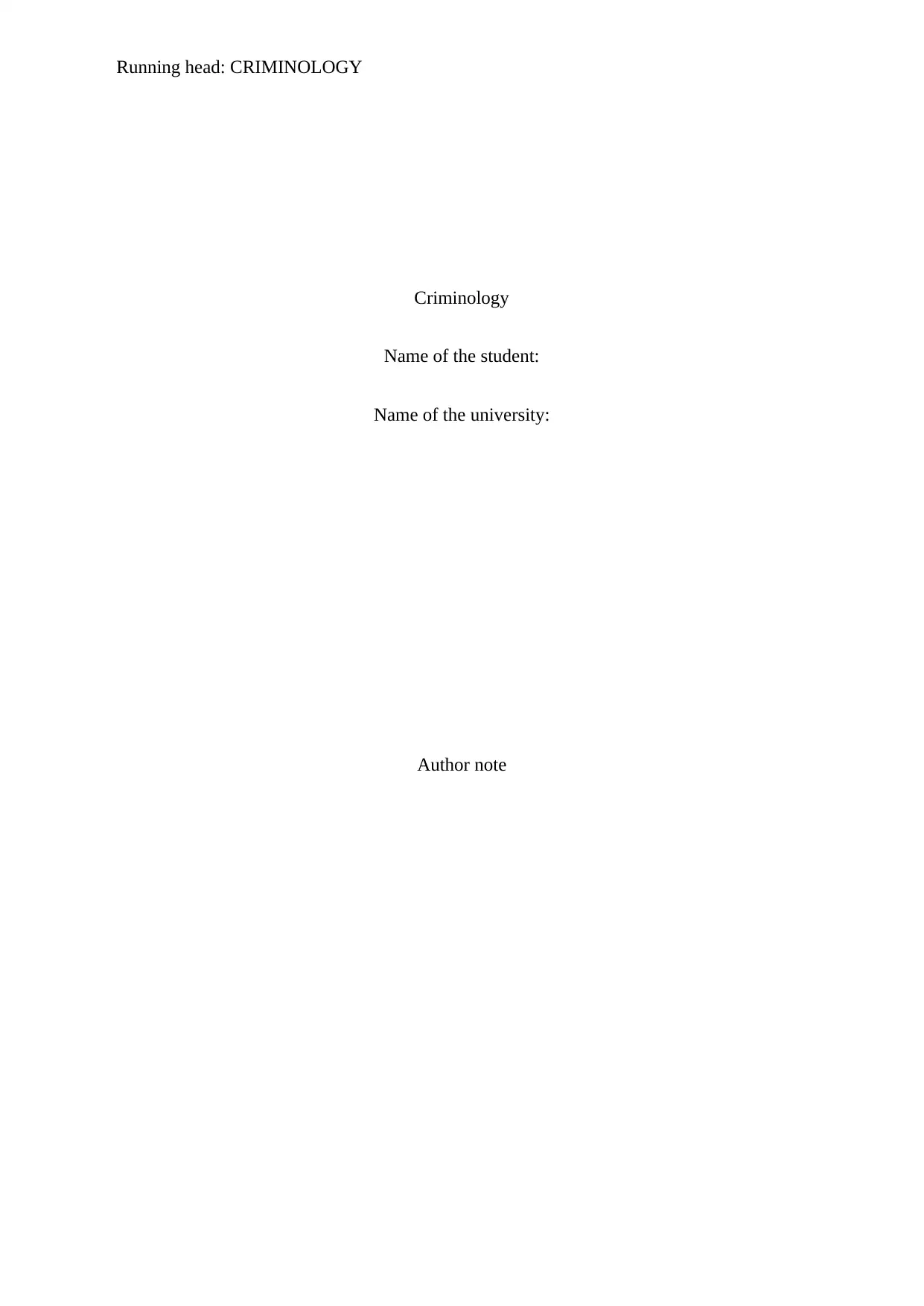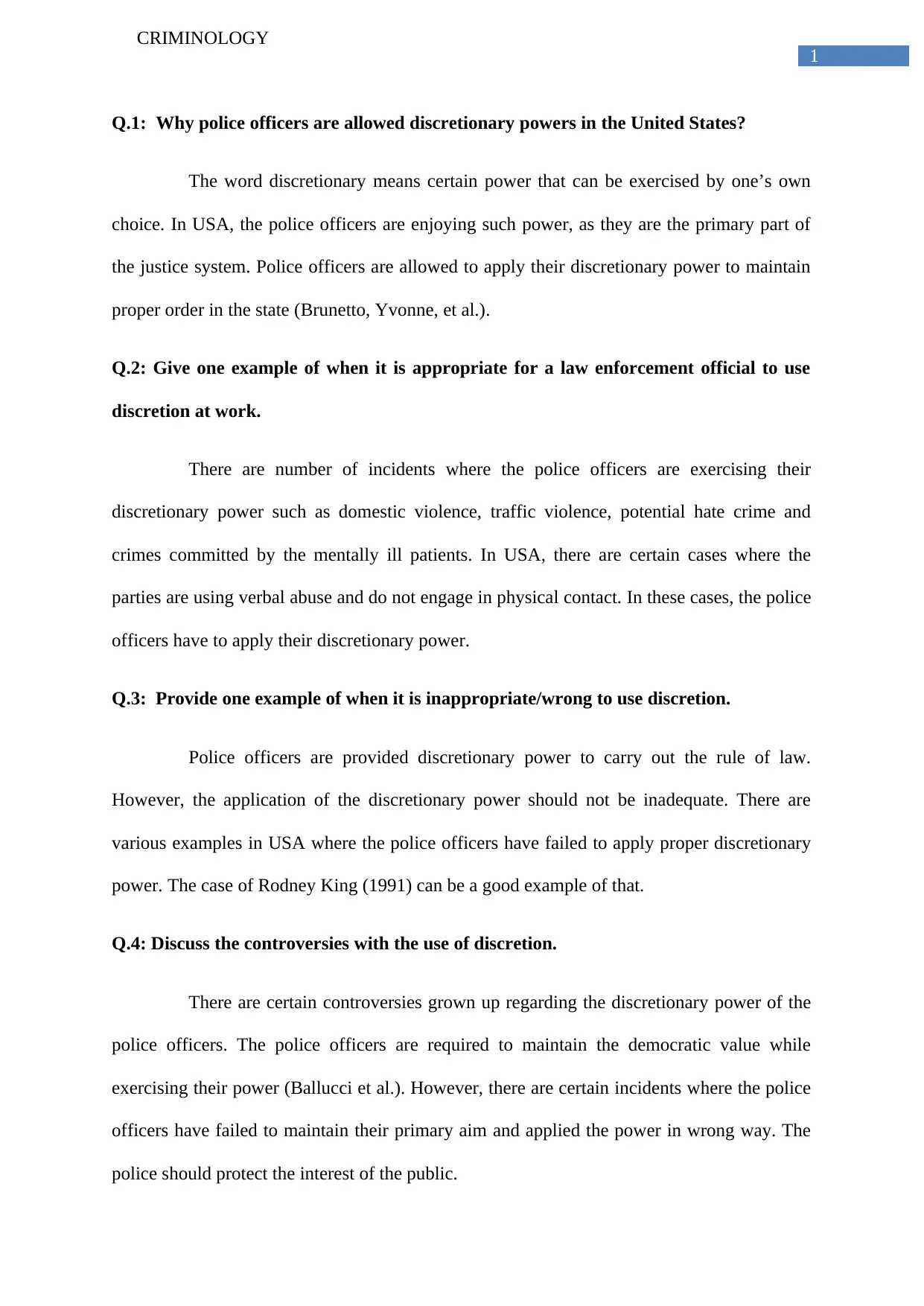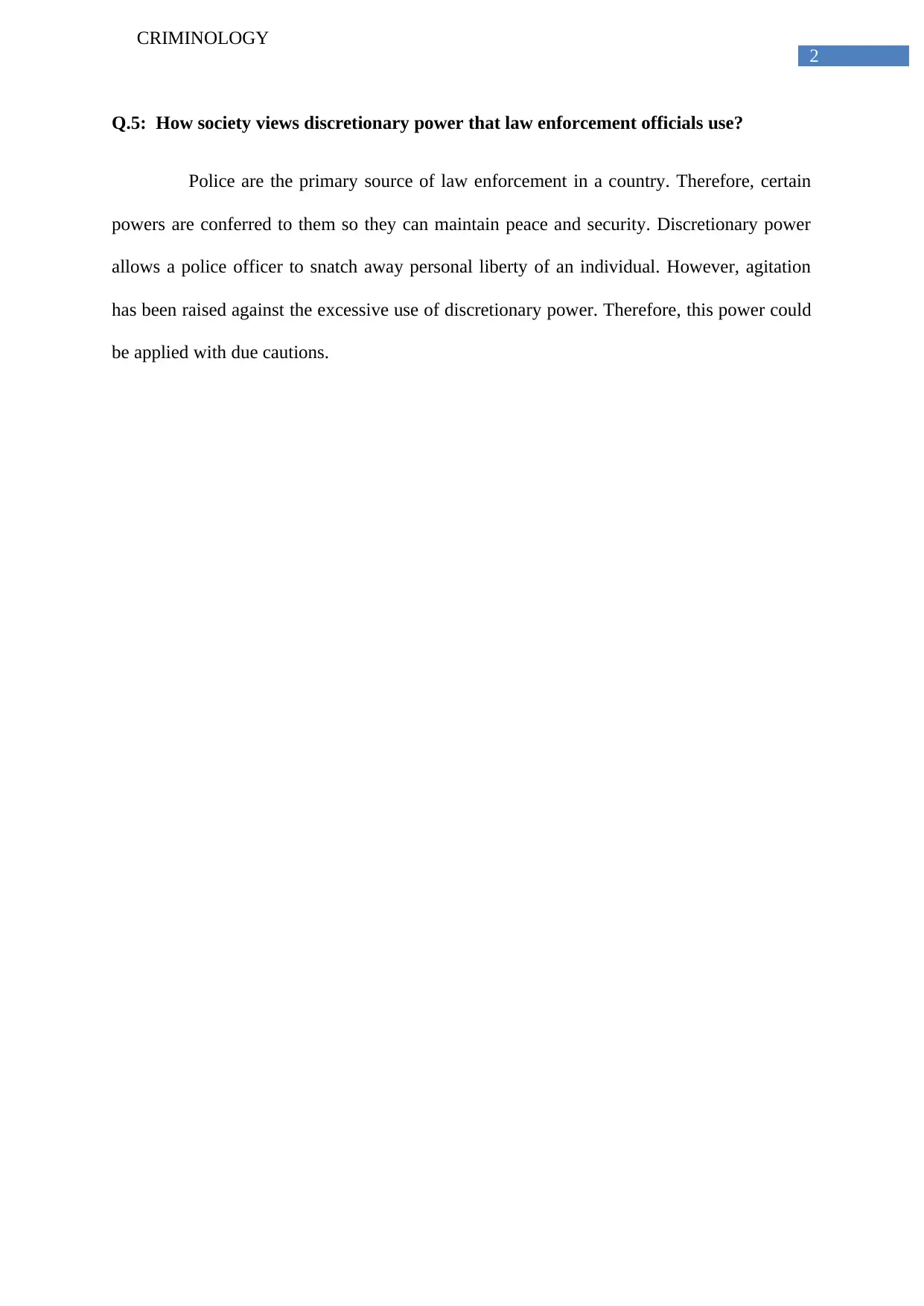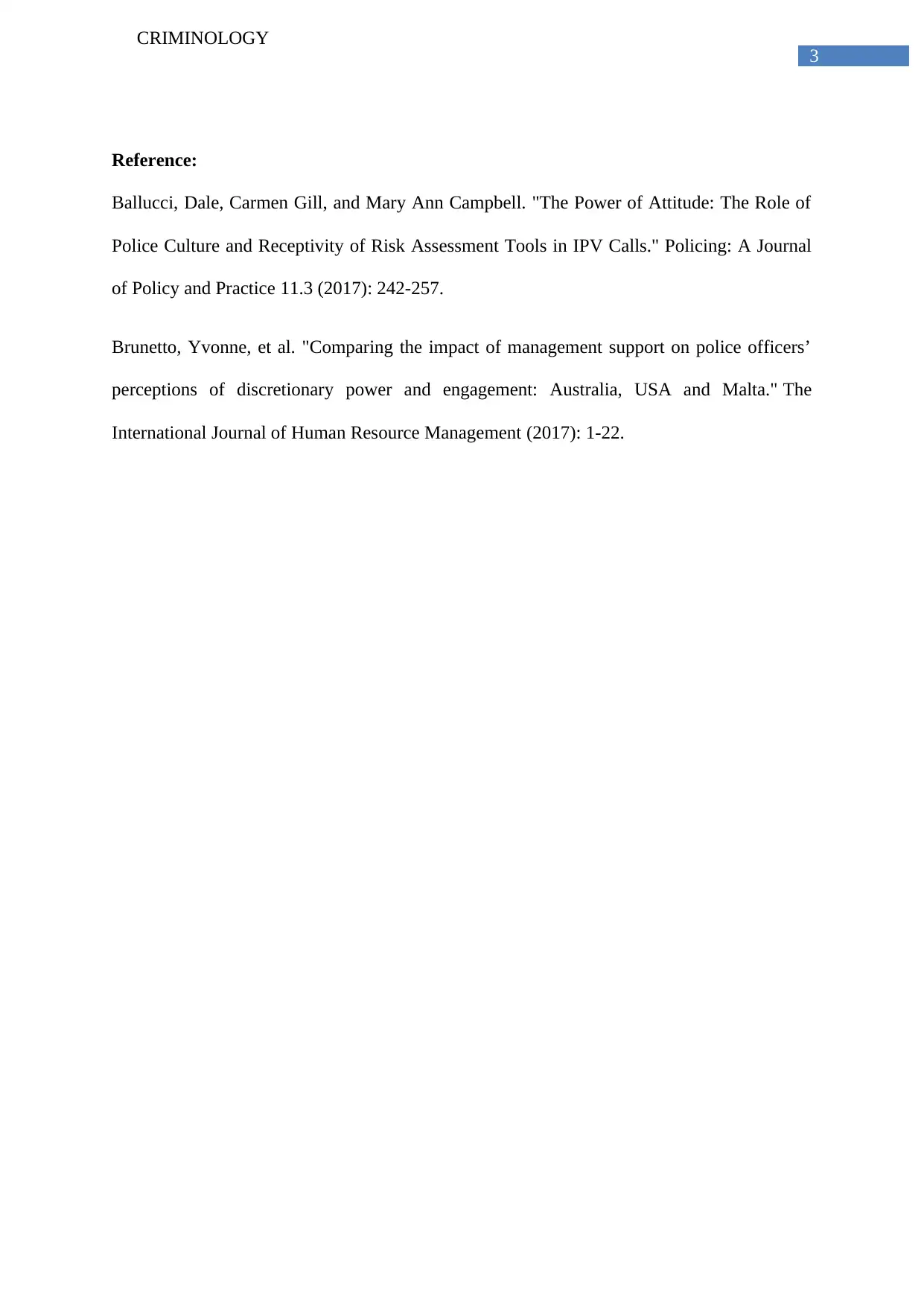Criminology Assignment: Discretionary Power and Law Enforcement
VerifiedAdded on 2023/06/10
|4
|525
|318
Report
AI Summary
This report analyzes the concept of discretionary power within the context of law enforcement in the United States. It begins by defining discretionary power and explaining its significance in the role of police officers. The report then provides examples of when such power is appropriately used, such as in cases of verbal abuse or minor offenses, and contrasts it with instances of misuse, such as the Rodney King case. It delves into the controversies surrounding the use of discretion, emphasizing the need for police officers to uphold democratic values while exercising their authority and also examines how society perceives the application of this power, especially concerning its potential impact on individual liberties. The report concludes by highlighting the importance of balancing the need for law enforcement with the protection of civil rights.
1 out of 4










![[object Object]](/_next/static/media/star-bottom.7253800d.svg)